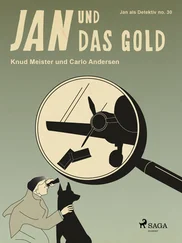G Anderson - Das Steingeschöpf
Здесь есть возможность читать онлайн «G Anderson - Das Steingeschöpf» весь текст электронной книги совершенно бесплатно (целиком полную версию без сокращений). В некоторых случаях можно слушать аудио, скачать через торрент в формате fb2 и присутствует краткое содержание. Год выпуска: 2016, Жанр: Фэнтези, на английском языке. Описание произведения, (предисловие) а так же отзывы посетителей доступны на портале библиотеки ЛибКат.
- Название:Das Steingeschöpf
- Автор:
- Жанр:
- Год:2016
- ISBN:нет данных
- Рейтинг книги:5 / 5. Голосов: 1
-
Избранное:Добавить в избранное
- Отзывы:
-
Ваша оценка:
- 100
- 1
- 2
- 3
- 4
- 5
Das Steingeschöpf: краткое содержание, описание и аннотация
Предлагаем к чтению аннотацию, описание, краткое содержание или предисловие (зависит от того, что написал сам автор книги «Das Steingeschöpf»). Если вы не нашли необходимую информацию о книге — напишите в комментариях, мы постараемся отыскать её.
The winner of 2017 World Fantasy Awards as the Best Short Fiction.
Das Steingeschöpf — читать онлайн бесплатно полную книгу (весь текст) целиком
Ниже представлен текст книги, разбитый по страницам. Система сохранения места последней прочитанной страницы, позволяет с удобством читать онлайн бесплатно книгу «Das Steingeschöpf», без необходимости каждый раз заново искать на чём Вы остановились. Поставьте закладку, и сможете в любой момент перейти на страницу, на которой закончили чтение.
Интервал:
Закладка:
Berlin was hell during the first war. Food shortages had forced me to eat the bark off trees to survive, to get by with loaves made from one-quarter flour and three-quarters ash — hardly enough for anyone, let alone a boy of fourteen. I had no particular interest in becoming a Schöpfer, but after the closure of the home where I'd grown up, and the later loss of my hostel place, I applied for a Guild apprenticeship simply because the advertisement, trodden into the gutter outside a soup kitchen, promised hot, regular meals, and a dormitory with running water.
I was apprenticed with nine other boys to Herr Schöpfer Fellinger, a man with a severe centre parting who had developed, since the signing of the armistice, a deep suspicion for anyone who looked remotely Jewish. "You've got that pallid, sickly look about you," he sneered up at me during our first lesson.
"Aren't Jews supposed to be short and fat?" a scrawny red-haired boy with a crooked front tooth shouted from the back, which made the rest of the boys laugh.
Gradually, Fellinger introduced us to Queckstein, the material from which all Steingeschöpfe are carved. We spent months observing — and then experiencing, in small doses — its siphoning effect, how it sucks away a Schöpfer’s energy and animates itself.
We toured exhibitions and heard lectures from renowned Italian masters. We were shown newsreels of the Statue of Liberty, the largest Steingeschöpf ever created. She still guards the port of New York, wading in the deep waters of the city’s harbour and hailing new arrivals with the hearty “ Bienvenue !” of many long-dead Frenchmen.
The bed and board — and the craft, I admit — invigorated me. I worked hard to recognise the difference between a rondel chisel and a toothed chisel. I learned how to touch completed Steingeschöpfe, how to listen to the echoes inside them. Even Fellinger had to admit my progress was more than passable. By the time I was permitted to work with raw Queckstein, however, it became clear that our styles clashed: he loved floridity, while I was drawn to everything sparse and efficient. "You favour a steady line," he once said as he inspected my latest carving — and from anyone else it might have been a compliment. I knew better. I knew that, to Fellinger, steady meant predictable. Predictable meant boring.
Of the ten boys apprenticed, only I and one other— Franz, the red-haired boy — earned our badges. The rest gradually peeled away. Some lacked the skill, others the patience. At least two were whisked away to the country by their parents to escape the escalating post-war violence in Berlin. One boy ignored Fellinger's warnings and never wore his mask while filing: a year's worth of Queckstein dust settled in his lungs, siphoning his energy unchecked until he died, cotton-haired and frail, aged seventeen.
I admired Franz's designs, as elegant as he was coarse. They had stretched-caramel limbs, unnaturally elongated and graceful. Wisps of stone, hardly existing at all. The shock, and the joke, came when they spoke: Franz knew every foul word I'd ever heard and then some, and every Steingeschöpf he made, however beautiful, knew them too. When Fellinger presented our work to the Guildmasters one summer— "Fick dich, du blödes Arschloch!" — we crouched outside the door with our fists in our mouths and tears trailing down our cheeks. Franz was given extra instruction in controlling the siphoning process, which would prevent this transference, but his aesthetic was highly praised.
I, however, was no artist. Franz had applied for an apprenticeship to improve his innate talent; I had only wanted a roof over my head. My work from the same summer — and every other summer — was received with little enthusiasm from anyone other than Franz.
I couldn't hope to match de Loynes's style. A three-hundred-year-old hidden masterwork would be ruined.
And no less of an issue — I dutifully reminded myself — was the fact that Frau Leitner had tried to circumvent our fees by downplaying the level of skill needed for the restoration. The inflation of five years prior had buckled the Guild's reserves, relying as it did on the buying and selling of Steingeschöpfe and fees owed for repairing wear-and-tear and war damage which, in the early twenties, no German had had the marks for.
As I nursed my cigarette, I became aware of Frau Leitner's death rattle behind me. I slipped my badge back into my pocket.
"His paintings don't sell that well," she said quietly. "I knew they'd send a master if I was honest in my letter, and I've heard what your lot charge. I'd have fixed him myself, but last I checked, you don't teach women." She sighed and sat with me on the step, nodding at my cigarette. "Do you have a spare?"
I did, but I hesitated. "What about your cough?"
Frau Leitner snorted. "What's it going to do, kill me?"
I lit her cigarette with a match, my hands protecting the tiny flame from the wind. The first few drags caught in her throat and she choked, but it only made her more stubborn to carry on. "These are good," she said, her eyes watering. I had to smile, and once she caught my eye, she smiled as well. She was not a beautiful woman, but something about her features — the way her mouth moved to accommodate her front teeth — irresistibly drew the eye.
"I'm sorry," she said, exhaling smoke.
"I understand," I said. "Times are hard for everyone."
She flicked ash into the snow. "He's been with me my whole life. He's taken good care of my family and now I want to take good care of him. I want to know he'll be all right when I'm gone." As if to punctuate her point, she coughed into her hand, dry and painful.
"The Guild at Berlin would be happy to have him," I told her, wondering whether it would be rude to pat her back. "He'd be welcome anytime."
Frau Leitner shook her head and swallowed. "And be gawked at for the rest of his existence? Listen, he's not interested in all that showy masters’ rubbish. Just a set of eyes and a tidier mouth — as good a job as you can make it that won't cost the earth. You can do that, can't you? Or what did you get that badge for?”
I rubbed my face. It had been a long day and I was exhausted. "I need to see him in daylight," I said, mostly to mollify her. Part of me, though, was buoyed by her distaste for the kind of ornamentation Fellinger always favoured. I squashed my cigarette on the step and got to my feet, my eyes picking out the wheel tracks in the path. "I'll find myself a room and call again in the morning."
I'd ducked into the darkness of the hall to retrieve my tool case from the kitchen, when she said, quietly, "The guesthouse won't take you."
I paused, bile bubbling in my throat. Recently, signs had started to appear in shop windows and hotel lobbies across Germany— "Keine Hunde," and then, below, like an afterthought, "Keine Juden." The collar around the necks of Germany's undesirables was tightening, inch by inch.
At length, Frau Leitner blew out the last of her smoke and flicked the cigarette away.
"You can sleep in the living room. The sofa's comfortable enough."
The sofa was not comfortable enough.
The next morning, aching in places I'd never known I could ache, I set my tool case down in a corner of the attic beside half a dozen canvasses. My fingertips took a moment to tiptoe through them. They were odd things: light and dark paint without any clear subject, individual bristle strokes preserved like fossils in the thickest smudges. They had titles scribbled on their backs such as Ein Garten ohne Blumen and Rike, '12 . Looking at them, I felt as if I’d intruded on something raw and private.
I turned away and drew closer to Ambroise. The harsh light of morning hadn't been kind to him.
Читать дальшеИнтервал:
Закладка:
Похожие книги на «Das Steingeschöpf»
Представляем Вашему вниманию похожие книги на «Das Steingeschöpf» списком для выбора. Мы отобрали схожую по названию и смыслу литературу в надежде предоставить читателям больше вариантов отыскать новые, интересные, ещё непрочитанные произведения.
Обсуждение, отзывы о книге «Das Steingeschöpf» и просто собственные мнения читателей. Оставьте ваши комментарии, напишите, что Вы думаете о произведении, его смысле или главных героях. Укажите что конкретно понравилось, а что нет, и почему Вы так считаете.











